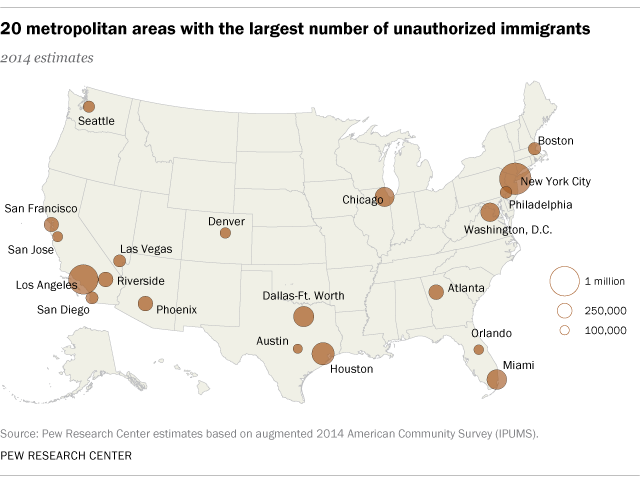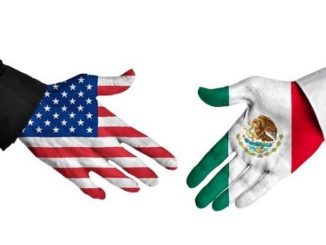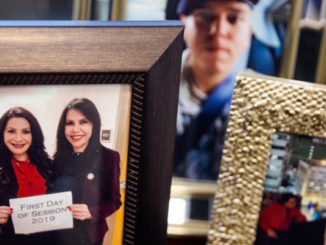
by Alex Gonzalez
On Sunday, the Mexican government called governor of Texas Greg Abbott to offer help ‘dealing with the disaster as good neighbors should always do” as they did when Katrina devastated the Gulf of Mexico. And while this would be a “good neighbors” act and sign of solidarity, Mexico and the Mexican consulates in Texas don’t have to wait for approval by Trump to allow Mexican marines to bring aid from Mexico in big military convoys as they did during Katrina.
There are some ways that the Mexican consulates in Texas can help by developing an intra-agency coordination to help Mexican citizens, and Americans, in Texas during the disaster, even if the Mexican government does not send the Mexican marines to the U.S..
For starters, Texas is home of about 1.6 million of undocumented immigrants and about 80-90% of them are Mexican citizens. About 60% of them have been in Texas longer than a decade and already have houses, businesses, and others assets that unfortunately will be damaged by the floods. And most likely they do not have a Social Security number, which is the first step to qualify for FEMA relief.
And there are big difference between the population of Mexicans in Louisiana when Katrina hit and the current Mexican population of Texas. According to the Pew Hispanic, in 2009, the population of undocumented residents in Louisiana was only 55,000 while the current population of undocumented residents in Texas is 1.650,000. Furthermore, the numbers of 55,000 undocumented residents in Louisiana in 2009 was probably due to the increase of immigrants worker the moved to Louisiana to help rebuild the state after Katrina. Thus, the number of Mexicans in Louisiana during or before Katrina was most likely lower than 50,000. So Texas is not Louisiana.
Moreover, many of native Texans have Mexican parents or are in “mix marriages” with one Mexican parent and one American parent of Mexican descent, or many are one U.S. citizen parent and one undocumented parent. So Mexican consulates, in helping Mexicans citizens, will also be aiding American citizens.
Because of the cultural and economic ties between Texas and Mexico, there are also about a million or more Mexicans citizens in Texas, who are “legal permanent residents” or have some type of ‘legal’ status, who will be able to use some type of FEMA disaster relief. Thus, this is going to be monumental bi-national task that for many families U.S. citizenship and legal status will be main factor determining financial assistance after the flooding.
Here is where the Pew Hispanic table based on data for the 155 metropolitan areas in the dataset that had foreign-born populations of at least 20,000 people – enough to provide a reliable estimate – can be found here and in this Excel sheet. The Center’s methodology for estimating unauthorized immigrant populations can be found here.
This is how the Mexican government wants to help:
Carlos Gonzalez Gutierrez, the Mexican consul general in Austin, said he has been in constant communication with the governor’s office to determine how Mexico can best help.
“As we have done in the past, Mexico stands with Texas in this difficult moment,” Gonzalez said. Mexico is prepared for a Katrina-like assistance package, officials said.
But in term of Katrina-like disaster, the population of Mexican citizens in Texas, both legal and undocumented, is substantially larger than Louisiana and will need real bureaucratic efforts by the Mexican government to coordinate assistance.
The Mexican consul general in Austin keeps reiterating that Mexico is ready to assist in the disaster, but in fact, it should already be partnering with state/counties’ agencies to assist these Mexican immigrants in Texas who unfortunately will not qualify for any federal relief due to their immigration status.
Furthermore, some of these people seeking shelter in some of the “mega shelters” in Houston or Dallas may have private insurance and will be able to submit some type of insurance claims, regardless of immigration status. These are the type of legal assistance the government of Mexico can assist via “mobile centers” inside the mega shelters.
The General Consul of Mexico in Houston was less vocal about Katrina-like assistance but acknowledged this will be long recovery. Here is the statement of the Mexican consulate in Houston.
Texas is one of those states that does not offer state ID or Driver licenses to those who cannot provide proof of legal status. As a result, most undocumented Mexican immigrants rely on “matriculas” and passports issued by Mexican consulates in Texas.
The first step upon arriving to one of the mega shelters, and smaller shelters that most like will stay open for few weeks if not months, is identifying who you are by showing an ID or Social Security number; these are items undocumented immigrants won’t be able to provide. Therefore, in coordination with state and counties agencies, the Mexican government should set up “mobile centers” in these mega shelters to identify those seeking aid who are Mexican citizens and who cannot provide basic state-issued documents such as state IDs – and those legal “residents” who may need help filing claims with FEMA – and assist them by directing them in the right direction.
The governor of Texas Greg Abbott, the Department of Homeland Security (DHS), and all mayors of big cities like Houston, Dallas and San Antonio have already reiterated that shelters will not be a place for ICE to be checking for documents; and people should not fear seeking refuge in these mega shelters. But, the Mexican government also need to step up its efforts in assisting its own citizens who pay high fees every time they go to the consulates to apply for documents.
We can be honest and say that the state of Texas and the federal government will not engage in any deportation tactics since they fully know that when the time for cleaning and rebuilding Texas comes, we all know who is going to do the job. 40% of all the construction workers in the state are Hispanic immigrants, both legal and illegal, and landscaping industry is mostly done Mexican immigrants with and without documents.
But, for now the Mexican government through its consulates needs to work and be willing to redirect financial resources to help both Mexicans citizens in Texas to set up help centers to guide people in the right direction.
These Mexicans help centers in shelters should not be about creating differences between Mexican and U.S. citizens, or legal and undocumented residents, but rather about providing assistance to all those who will not be covered by federal programs due to immigration status. Moreover, Mexican consulates already have in Texas already have “mobile centers” they routinely use to drive to immigrant communities to provide services; and all of these resources are paid by fees that immigrants pay when the apply for “matriculas“ or passports.
The psychological trauma that will be left in those who are being rescued, and the trauma of living in shelters among strangers and in public spaces, may be only the first stress these families will have to endure. The financial stress for these immigrants will be the second, many families lost some or all of their assets in the flood; so they deserve all the help they can get when the rebuilding of the great state of Texas begins.
When it comes to Mexico-Texas relation, and considering all Mexican citizens who live in Texas, Texas is not Louisiana. So Mexico need to be a “good neighbor” and help Texas as much as it can. But, Mexico should also be responsible for about 2.5 million of its citizens who call Texas home. The economic loss caused by Harvey will be greater than Katrina, so it will apt for Mexico to step and show a greater effort than it did in Katrina.
Alex Gonzalez is a political Analyst and Political Director for Latinos Ready To Vote. Comments to [email protected] or @AlexGonzTXCA




